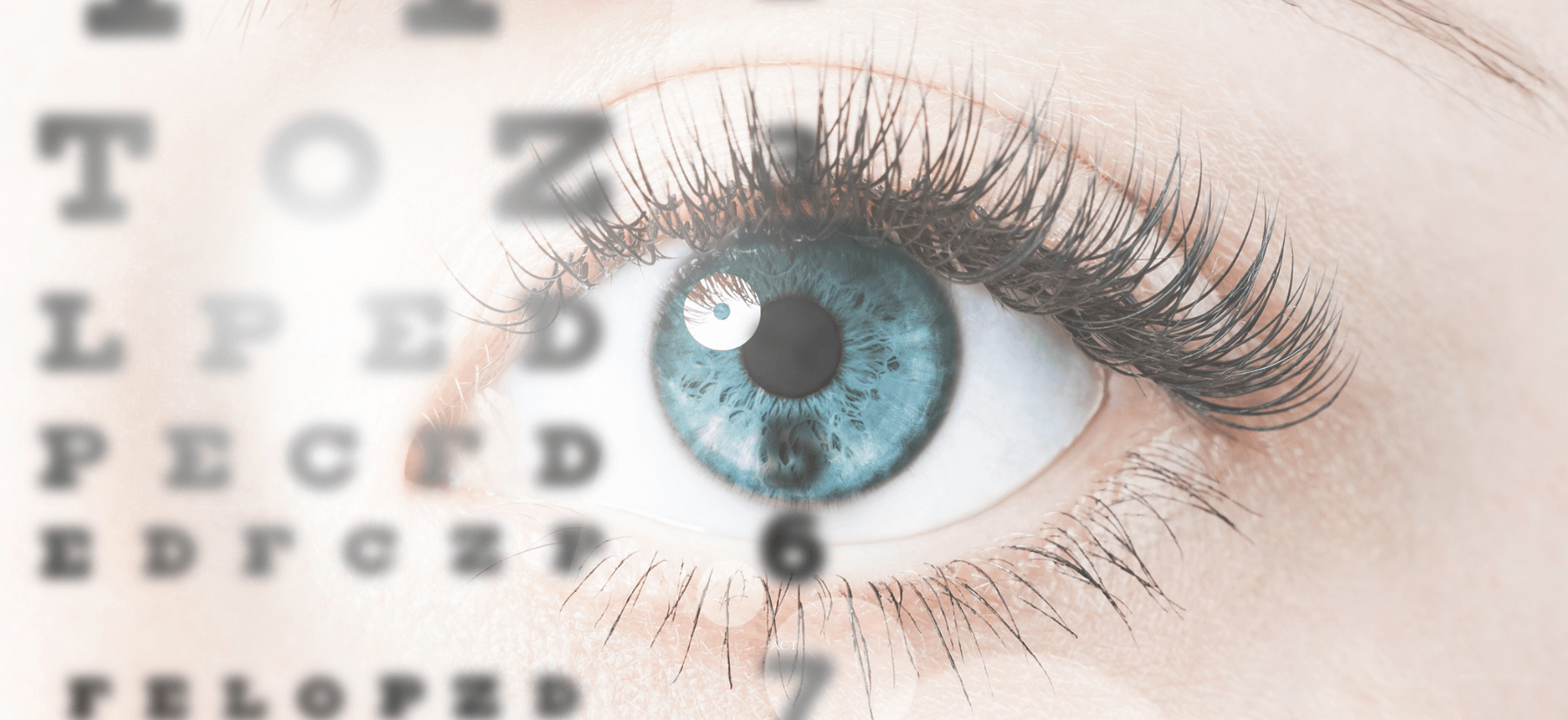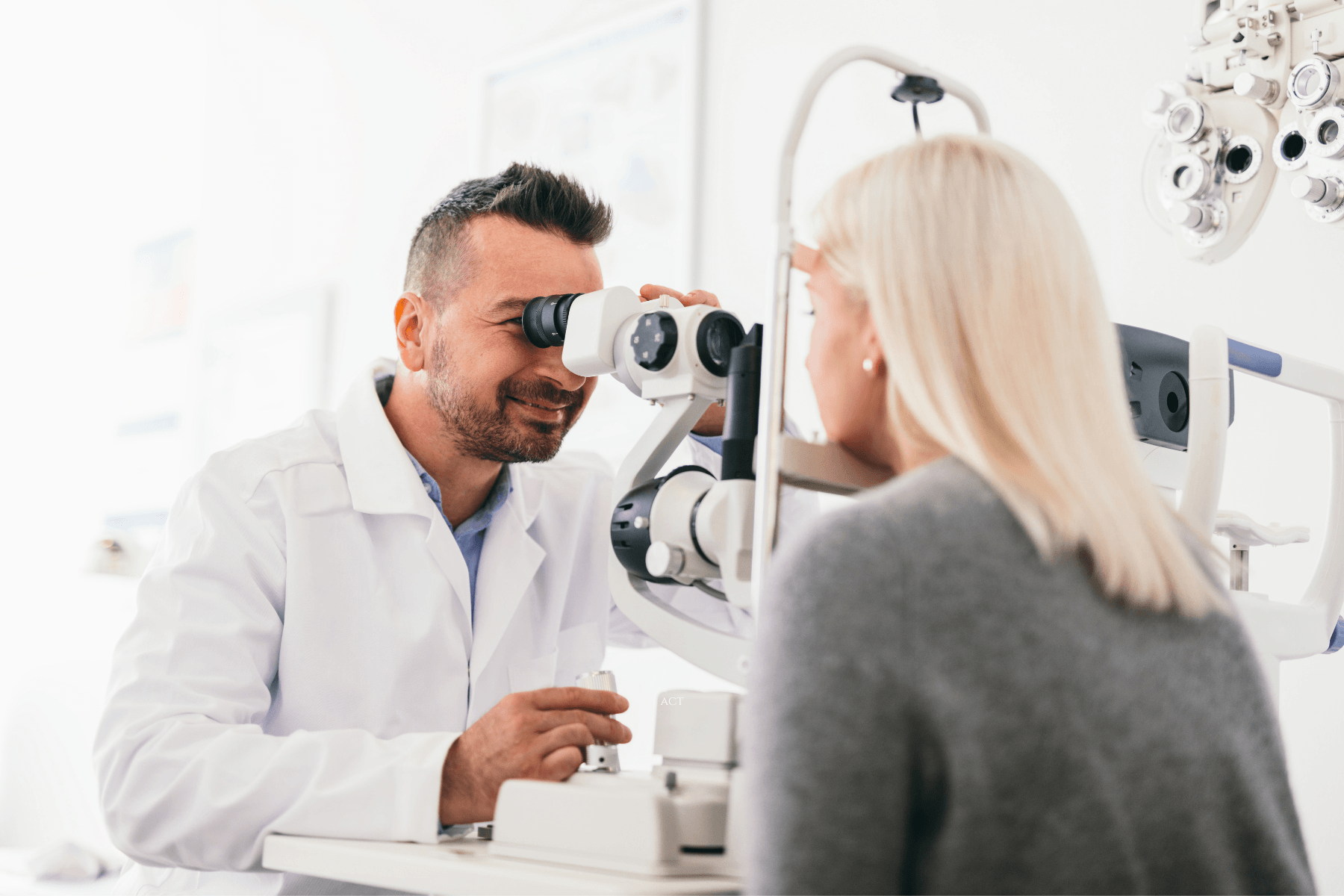How Often Should You Get an Eye Exam?
Everything you need to know about when to get an eye exam:

The eyes are two of the most sacred organs in the entire human body. Along with the brain, they work together to convert incoming light into an image, giving us the incredible and wonderful gift of eyesight. Without quality vision, life would be much different for the average individual.
There are a number of different structures that contribute to our vision and overall eye health. The most prominent eye structures include the cornea, lens, pupil, iris, uvea, sclera, vitreous humor, retina, optic nerve, and the brain. Tears also play an enormous role in eye health.
In order for your vision to work as intended, all of these different structures need to be healthy and working properly. Any inconsistencies or damage to these structures can result in eye disease, vision changes, eye problems, irritability, injury, and even permanent vision loss.
That’s why maintaining your eye health is essential to preserving your vision for as long as possible. By taking the necessary precautions – such as scheduling a regular eye exam – and being on the lookout for early warning signs of eye problems, your vision will continue to prevail.
So, how often should you get an eye exam?
When you were growing up, you likely remember your parents scheduling an appointment with your eye doctor every year. Just like the dental cleaning or the annual physical, most children don’t enjoy visiting the eye doctor’s office and this will generally follow them into adulthood.
As much as we try to avoid the doctor’s office, getting frequent eye exams is essential not only to your eye health, but your overall health and wellness. That’s why most eye doctors suggest scheduling an annual eye exam every year to detect any eye problems in their earliest stages.
With that said, the time difference between exams will vary for everyone. Adults between the ages of 20 and 39 can usually get away with an eye exam every three years. The need for an annual eye exam gradually increases as you age, but it’s best to do it every year just in case.
For children, we recommend scheduling their first eye exam by the time they turn one year old. You should schedule another eye exam before they start school (3-5 years old) and then once every year after that up until they graduate. This helps your doctor monitor their eye health.
At the end of the day, everyone is different. Some people can get away with an eye exam every couple years, while other people might need to visit several times per year. You should always follow the advice of your ophthalmologist since they know your eye health better than anyone -- especially if you wear glasses or contact lenses.

What Does an Annual Comprehensive Eye Exam Include?
A comprehensive eye exam is an all-inclusive eye exam that tests for a wide range of issues in the eye. The goal behind an eye exam is to measure and analyze your current eye health, while also monitoring eye health long-term to detect, diagnose, and treat any eye issues that arise.
The eye exam generally won’t take more than an hour and a half. Your eye doctor will have you complete a number of different tests, all of which are non-invasive tests that won’t take long. By the end of the exam, your doctor will know everything there is to know about your eyesight.
Here are some of the most prominent tests completed during a comprehensive eye exam:
- Visual acuity test with the standard eye chart
- Testing for a refractive error in the eye (myopia, hyperopia, astigmatism)
- Retinoscopy to observe the reflection of light off the retina
- Visual fields test to analyze blind spots and peripheral vision
- Cover uncover test to detect binocular and strabismus problems
- Slit lamp test to detect certain eye diseases in the front and inside of the eye
- Dilated eye exam to get a closer look at the retina and overall eye health
- Glaucoma test to measure eye pressure and presence of glaucoma
In addition to the tests above, your doctor will also ask you a number of questions to get a sense of your daily lifestyle and habits. They’ll also want to know about your family history and personal medical history to properly detect risk factors, especially since some eye diseases are genetic.
Contact MomPremier Eye Institute Today!
Scheduling regular eye exams is extremely important to maintaining quality vision for as long as possible. Whether you’re experiencing symptoms of potential eye disease or have perfect vision, you should never hesitate to schedule a regular appointment with your ophthalmologist.
At
MomPremier Eye Institute, we take great pride in serving the DeSoto, TX community – as well as all the wonderful communities nearby. For a welcoming, friendly, passionate, and experienced team of eye care specialists, contact our office today at
469-687-5664.
We can’t wait to serve you and your family with quality eye care services year-round!







